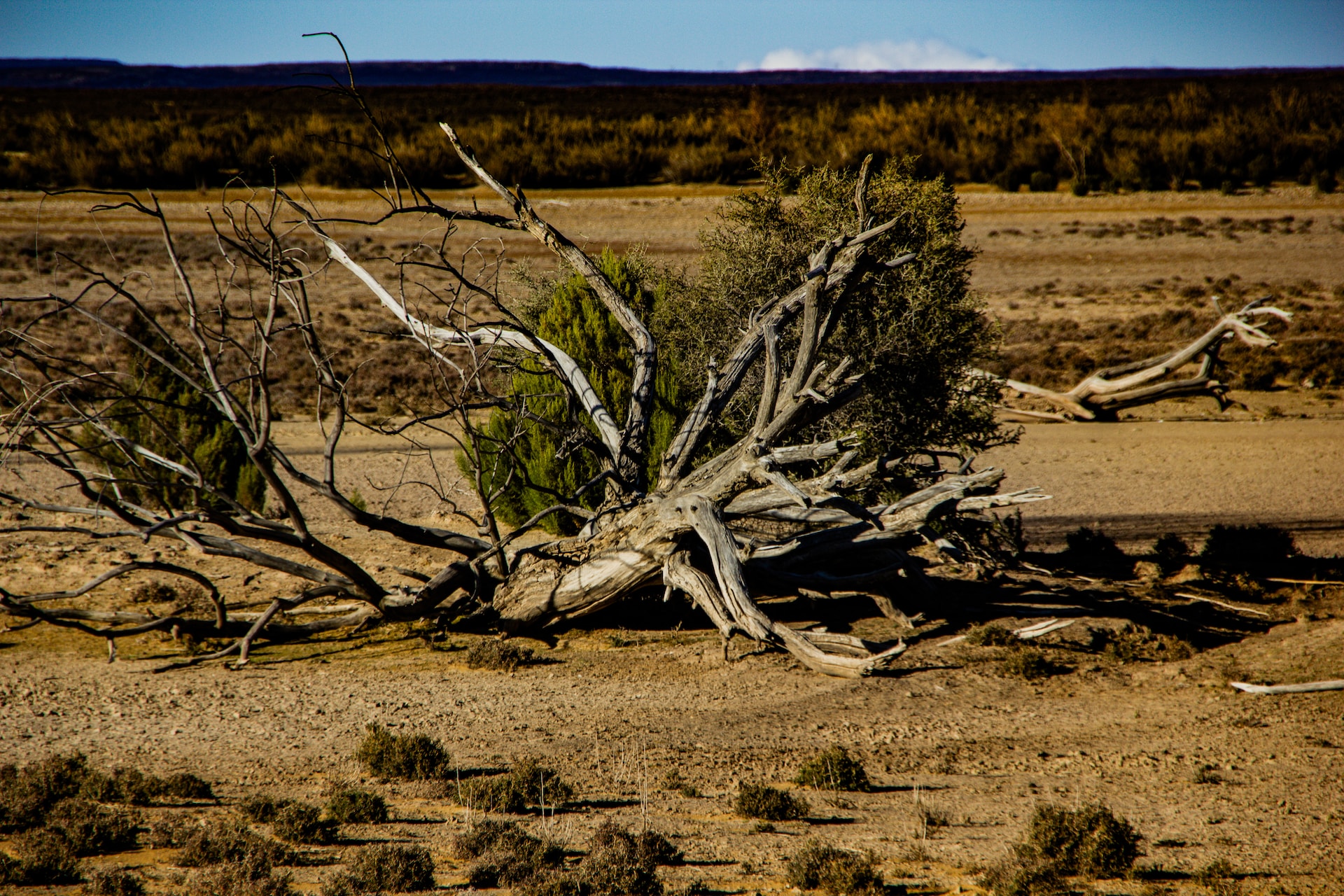Accounting for merely 2 to 3 percent of the world’s carbon emissions, the African continent has suffered the most severe consequences of global warming and climate change, due to the rapidity of its warming trends, its structural and institutional vulnerability, and its difficulty in implementing necessary adaptation and mitigation strategies.
According to the Intergovernmental Panel on Climate Change (IPCC), crucial development sectors in Africa have already faced substantial losses and damages attributable to human-induced climate change, including biodiversity loss and ecosystem disruption, water shortages, reduced food production from crops, fisheries and livestock, loss of lives and rise of diseases from heat and infections, and an overall reduced economic growth.
In this context, climate finance emerges as a key player in enabling climate-resilient development in Africa, especially with an expected rise in intensity, frequency and severity of climate hazards and extreme events. The IPCC report emphasizes the importance of the implementation of adaptation strategies for reducing risks for African countries. Adaptation strategies, together with mitigation and a transition to a low-carbon economy are therefore crucial for granting a climate resilient, inclusive and equal approach to African countries’ development.
According to the United Nations Development Programme (UNDP), despite their efforts to reduce national emissions and adapt to the impacts of climate change, African countries need significant and sustained climate finance support from other nations.
For example, UNDP highlights that “from 2020 to 2030, the estimated funding required for African countries’ nationally determined contributions (NDCs) is approximately $2.8 trillion, representing more than 93 percent of Africa’s GDP.”
African governments have committed $264 billion of domestic resources to implement the national NDCs, in spite of high debt and the need for funds for development projects. This sum amounts to about 10 percent of the total estimated cost needed: the rest is expected to come from international donors and the private sector.
Since the Paris Agreement in 2015, many international discussions have led to the realization of the need for developed countries to scale up climate finance for developing countries to deliver on an agreed climate finance target of $100 billion annually by 2020. However, trust has been undermined due the failure of developed countries to meet this target.
The first Africa Climate Summit
On September 4-6, 2023, representatives of African countries and the international community gathered in Nairobi, Kenya, to attend the first Africa Climate Summit. The summit was organized by the Kenyan government and African Union, with the theme “Driving green growth and climate finance solutions for Africa and the world”.
Kenya’s president William Ruto said in his opening speech that Africa’s renewable energy resources “can uplift millions from energy poverty, all while reducing our carbon footprint, continentally and globally.” As reported by the Guardian, the president thinks that African countries should no longer be seen as victims of the climate crisis, but as key players to providing solutions.
The summit spotlighted Africa’s significant potential in combating climate change, thanks to its abundant natural resources, including sunlight, wind, and forests.
A key message emerged: to facilitate the transition towards green practices and sustainable development, a robust backing is indispensable.
During the summit, the International Energy Agency (IEA) and the African Development Bank Group (AfDB) jointly presented a report titled “Financing Clean Energy in Africa.” The report “outlines innovative solutions for African countries to unleash the spending needed to achieve the continent’s energy and climate goals”, as stated by the IEA.
The report stressed the imperative need for swift actions, enhancing capital accessibility, and reducing financing costs to stimulate substantial clean energy investments in Africa. Despite Africa housing nearly 20% of the world’s population and possessing abundant resources, it currently receives only 2% of global clean energy spending. To align with African development ambitions and international energy access and climate goals, the continent must more than double its energy investment by 2030, with almost two-thirds directed toward clean energy initiatives.
As reported by Al Jazeera, according to a 2022 UN report, Africa loses between $7 billion to $15 billion annually due to climate change. To combat these effects, African countries need to raise an average of $124 billion annually. However, they have received only a fraction of this sum, totaling $28 billion so far. Bridging this gap between the green energy sector’s potential and its financial needs demands the immediate implementation of diverse and equitable financial instruments to secure Africa’s energy future.
“The African continent has huge clean energy potential. […] But the difficult backdrop for financing means many transformative projects can’t get off the ground,” said IEA Director Fatih Birol in a statement, as reported by Reuters.
The IEA report identifies multiple barriers hindering investments in clean energy projects in Africa. High debt in many areas of the continent lead to a limited public capital available, while private investors are held back by high perceived and actual investment risks, pushing up the cost of capital, and making energy projects uncommercial or more expensive for end users.
The report therefore identifies a clear gap between the potential and the needs of the green energy sector in Africa, and the fact that early and equal financial instruments are needed to fill this gap in order to secure Africa’s energy future.
“Renewable energy could be the African miracle but we must make it happen,” said United Nations Secretary General Antonio Guterres in his address during the summit. “We need a course correction in the global financial system so that it supports accelerated climate action in the context of sustainable development. […] This means an international financial system that is able to provide an effective debt-relief mechanism that supports payment suspensions, longer lending terms, and lower rates.”
Building the African green future: the Nairobi Declaration
The Nairobi Declaration was adopted at the end of the Africa Climate Summit, as the basis for a common strategy for African states in the global climate change actions. It was also resolved that the Summit will be a biennial appointment, convened by the African Union and hosted by Member States, “to set the continent’s new vision taking into consideration emerging global climate and development issues”.
The Nairobi Declaration, a roadmap for Africa’s green energy transition, aims at influencing climate commitments, plans and targets. It primarily calls for implementing solutions to facilitate responses to the climate crisis, including debt relief and the adoption of global carbon taxes.
“We are not asking to be favored or to be treated differently; we want a fair financial system that treats everyone equally. Many of our countries are going into a financial crisis because of climate change. We are shifting resources that are meant for development to deal with the effects of climate change. We have the best of respect for the multilateral banks but we believe they can do better.”
President William Ruto, as quoted by the Standard
The Nairobi Declaration calls upon the global community for an urgent reduction of emissions, and an accelerated process of dismissal of coal and fossil fuels. In exchange, the signatories commit to implementing strategies to attract “local, regional and global investment in green growth and inclusive economies,” and moreover to “provide all the necessary reforms and support required to raise the share of renewable energy financing to at least 20 percent by 2030.”
Concrete actions to “reform the multilateral financial system” include measures to improve debt management, such as new debt relief interventions and tools, and a call for the promotion of an inclusive and effective international tax cooperation.
The first African Climate Summit was considered a success by many, having obtained substantial results such as a pledge of $4.5bn in clean energy investments in African nations from the United Arab Emirates. On the other hand, some were critical of the strong focus on climate finance at the expense of adaptation and mitigation strategies, as reported by The Guardian.
The Declaration contains a call to action to prompt the global community to “mobilise the necessary capital for both development and climate action, echoing the statement of the Paris Summit for a New Global Financing Pact, that no country should ever have to choose between development aspirations and climate action.”
Read more:






